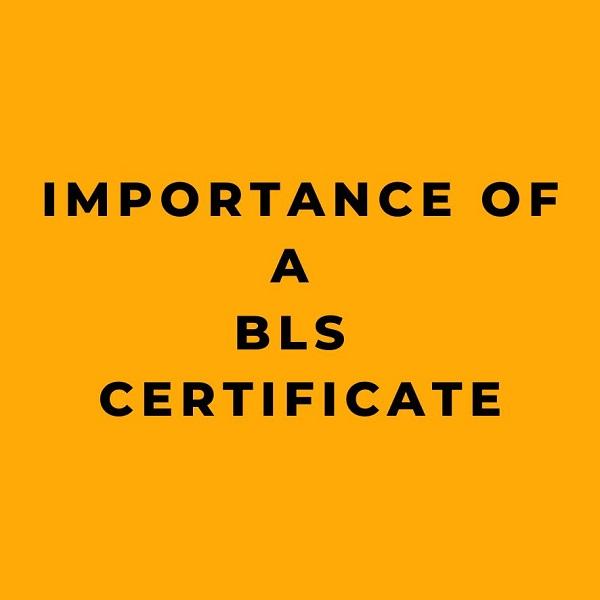Basic Life Support (BLS) certification is a crucial credential that empowers individuals with the knowledge and skills to respond effectively in life-threatening emergencies. Whether you are a healthcare professional, a first responder, or a member of the community, obtaining a BLS certificate is essential for personal and professional development. This comprehensive article will delve into the significance of BLS certification, exploring its role in saving lives, professional growth, community impact, and personal preparedness.
Immediate Response
In emergencies such as sudden cardiac arrest, time is of the essence. Without prompt intervention, a person’s chance of survival rapidly diminishes. BLS training teaches individuals to recognize when someone needs assistance and how to respond immediately. This includes assessing the situation, checking for responsiveness, and initiating the “chain of survival” by calling for help and starting CPR. The knowledge gained from BLS training empowers individuals to take control of the situation, ensuring that vital life-saving steps are initiated within moments of an incident. This immediate response can significantly increase the chances of survival for the affected individual.
BLS Training and Increased Survival Rates
Cardiac arrest is a leading cause of death worldwide. However, studies consistently show that survival rates increase significantly when bystanders and healthcare providers are trained in BLS techniques. BLS training equips individuals with the skills to perform CPR, use Automated External Defibrillators (AEDs), and manage basic airways. With these skills, individuals can confidently respond to emergencies such as cardiac arrests, choking incidents, and drowning accidents, thereby increasing the likelihood of survival for the affected individuals.
Professional and Personal Development
BLS training is not only about saving lives; it is also a valuable skill for personal and professional development. Many careers, especially in healthcare, require BLS certification as a prerequisite. By obtaining a BLS certificate, individuals enhance their job prospects, demonstrating dedication to patient care and commitment to maintaining the highest emergency response standards. Moreover, the confidence and preparedness gained from BLS training can significantly reduce anxiety and stress in emergency situations, enabling individuals to make rational decisions and provide effective care.
Renewal and Continued Education
BLS certification requires individuals to renew their certification every two years. This renewal process ensures that individuals stay updated with the latest guidelines and techniques in emergency care. It also provides opportunities to expand knowledge and enhance skills in life-saving techniques. By staying prepared and knowledgeable, BLS-certified individuals can continue to provide the best possible care to those in need.
Community Impact
BLS certification training not only benefits healthcare providers but also has a significant impact on the community. Immediate intervention in emergencies, such as cardiac arrests or choking incidents, can make the difference between life and death. BLS-certified individuals within the community can provide crucial assistance while waiting for professional medical help to arrive. By training community members in BLS, more people will have the necessary skills to respond effectively and confidently during emergencies, improving survival rates and creating better outcomes for individuals needing immediate medical attention.
BLS Classes and Certification
BLS classes are typically offered by healthcare institutions and certified training centers. These classes provide participants with a comprehensive understanding of BLS concepts, techniques, and protocols through a combination of theoretical instruction, hands-on practice, and simulation scenarios. Upon completion of a BLS course, participants receive a BLS certification card, which remains valid for two years. This certification is widely recognized and accepted in various settings, including healthcare facilities, schools, workplaces, and communities.
Skills Taught Under BLS Training
BLS certification courses typically include training in CPR, AED usage, and basic airway management. These essential skills empower individuals to respond confidently and effectively in life-threatening situations, increasing the chances of survival for those in need of immediate medical assistance.
Conclusion
In conclusion, the importance of a BLS certificate cannot be overstated. From saving lives and professional development to community impact and personal preparedness, BLS certification plays a vital role in ensuring that individuals are equipped to respond effectively in emergencies. By obtaining and maintaining a BLS certificate, individuals not only enhance their own skill set but also contribute to creating safer and more resilient communities. The impact of BLS training goes beyond the individual, extending to the lives that can be saved and the positive outcomes that can be achieved in critical situations. Therefore, investing in BLS certification is a valuable decision that can potentially make a life-saving difference.










